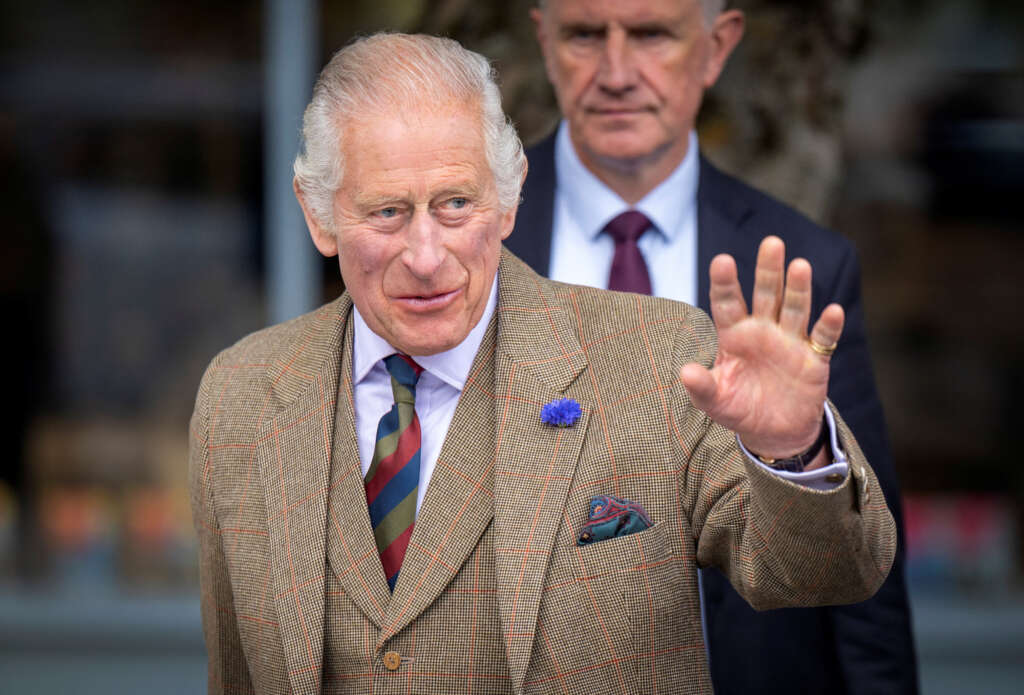
PARIS (Reuters) – King Charles will arrive in France on Wednesday for a three-day state visit, during which he and President Emmanuel Macron will hope to build on personal bonds to help turn the page on years of rocky relations between the two neighbouring countries.
The king and his wife, Queen Camilla, will start their visit with a ceremony at the Arc de Triomphe, with the aerobatics display teams of both nations’ air forces, conducting a flypast.
Amid the highlights of the trip will be a state dinner on Wednesday at the Versailles palace, where blue lobster and a selection of French and English cheeses will be on the menu.
On Thursday, Charles, Camilla, Macron and his wife Brigitte will visit the Notre-Dame cathedral to view restoration works following a massive blaze in 2019 that destroyed its roof.
Charles and Camilla will then head to the southwestern city of Bordeaux on Friday, where excursions will include a visit to an organic vineyard.
The king, a fluent French speaker like his mother, the late Queen Elizabeth, is keen to walk in her footsteps and is likely to refer to Elizabeth’s deep affection for France, officials said, with the trip also being a chance to rebuild ties that have been frayed by Britain’s chaotic exit from the EU in 2020.
“There are links of friendship and trust, the two (Charles and Macron) have spoken many times, and especially over the past year,” an Elysee official said.
Charles had hoped for a state visit to France to have been his first as king, but a March trip was postponed due to tense protests in France over pension reforms, much to Macron’s embarrassment.
‘ENTENT RENEWED’
On their second attempt at meeting in France, the 74-year-old king and the 45-year-old president will set out to build on a relationship already bolstered by their communications over Notre-Dame. Charles had written to Macron when the cathedral burnt down, and the pair also share interests in climate and heritage, royal aides said.
“I realize only too well what a truly special significance the cathedral holds at the heart of your nation; but also for us all outside France it represents one of the greatest architectural achievements of Western Civilization,” Charles wrote in his letter.
The warm words, visits and symbolic gestures come after several tense years over the negotiation of Britain’s exit in 2020 from the European Union, and after that, rows over issues ranging from immigration to the sale of submarines.
Former British Prime Minister Liz Truss once said the jury was out on whether France was a friend or foe, before settling on calling it a friend last year. Her successor, Prime Minister Rishi Sunak, visited France in March to kick off what he called an “entente renewed”.
Still, Parisians remained sceptical about the visit.
“He’s just the son, they are old already, we don’t have a long history,” said 88-year old Mireille Mauve.
Fifteen year-old Alexia Aubert said: “I think since Elizabeth died, the royal family isn’t as important as it was, King Charles isn’t as important and symbolic as Elizabeth, so it doesn’t really matter if he comes or not.”
(Reporting by Elizabeth Pineau, Michael Holden and Noemie Olive; Writing by Ingrid Melander and Michel Rose; Editing by Bernadette Baum)


